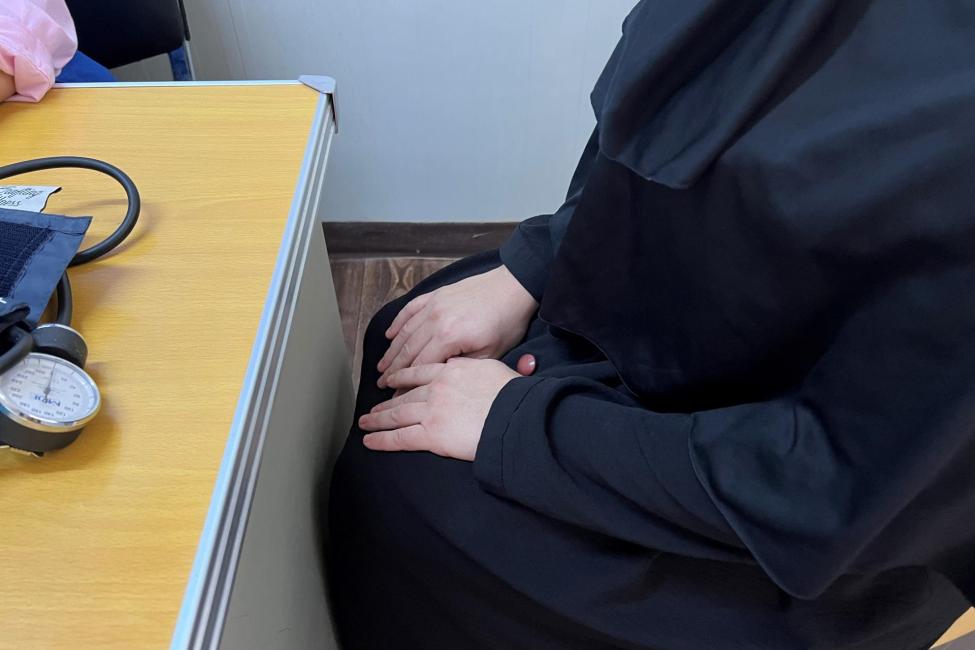-
Who We Are
WHO WE AREThe International Organization for Migration (IOM) is part of the United Nations System as the leading inter-governmental organization promoting since 1951 humane and orderly migration for the benefit of all, with 175 member states and a presence in over 100 countries. IOM has had a presence in Iraq since 2003.
About
About
IOM Global
IOM Global
-
Our Work
Our WorkAs the leading inter-governmental organization promoting since 1951 humane and orderly migration, IOM plays a key role to support the achievement of the 2030 Agenda through different areas of intervention that connect both humanitarian assistance and sustainable development. Across Iraq, IOM provides a comprehensive response to the humanitarian needs of migrants, internally displaced persons, returnees and host communities.
Cross-cutting (Global)
Cross-cutting (Global)
- Data and Resources
- Take Action
- 2030 Agenda
As a result of years of conflict, Iraq’s national health system suffers from constrained primary healthcare (PHC) services, a lack of sufficient trained health personnel, destroyed or inadequate healthcare infrastructure and shortages of medicines and medical supplies.
Internally displaced persons (IDPs) often live in precarious conditions in camps and informal settlements. These communities face poor hygiene and sanitation conditions and insufficient access to health services — including maternal and child health care.
IDPs in Iraq, including those in protracted displacement, still need support with access to basic services, including health services.
In the Al-Mateen sector of the Amriyat Al Fallujah informal site, Anbar Governorate, the International Organization for Migration (IOM) supports a health clinic that receives many residents from the surrounding area in Anbar. Patients undergo examinations and receive medication as needed.
Marwa was displaced from Al-Qaim district to Amriyat Al Fallujah informal site in 2014 with her husband after a tiring journey until they reached what was then an IDP camp, before it was closed and reclassified in 2021. She had to sacrifice her wedding ring to get money for the journey, so that her family could reach safety.
Marwa visited the IOM Iraq clinic, where there is a gynecologist, and after conducting tests, it was found that she suffered from chronic stress in pregnancy and a kidney condition, both of which were hindering her ability to conceive.
"My family was supportive of me. I never despaired, as my husband encouraged me to see a doctor, take tests, follow up on medicines and treatments, and the doctor from the medical team intervened. I followed their instructions and advice until I reached a positive result," Marwa explained, who is now expecting her second baby.
Like Marwa, Sarah also experienced difficulties with pregnancies, while also seeking safety for her family during the crisis caused by the Islamic State in Iraq and the Levant (ISIL). Sarah was displaced from Karma to Amriyat Al Fallujah in 2016, after her father was killed by ISIL; she decided to flee undercover with the help of friends.
"I got married in 2019 and for more than two years there was no pregnancy. I dreamed of becoming a mother, and this situation affected my psychological state greatly” explained Sarah, 29. “My financial situation was also not good enough to pay the medical examination fees and for the doctors’ visits to find out [why I couldn’t get pregnant]."
The combined costs of medical examinations and medication can be very expensive. It is difficult for displaced persons with no steady source of income to cover these costs, especially because many lost everything they owned when they fled suddenly after ISIL entered their cities.
"After a while, I learned [about the IOM clinic] and a female doctor who specializes in gynecological conditions . It is easy [and free] to access; I was encouraged and visited the doctor to conduct some tests,” Sarah explained. “It was discovered that I suffer from some problems that [were preventing] pregnancy."
Sarah was prescribed a course of treatment; her case was monitored periodically, and then she became pregnant.
"I am happy and excited to see the baby, and the addition of a new family member. I’m getting great support from my husband and family as well as from the medical team" said Sarah, who is due to give birth soon, at time of writing.
The health clinic receives an average of 20-25 patients per day; the medical staff’s duties include consultations for pregnant women; conducting ultrasounds; examining and treating gynecological disorders; and dispensing suitable medications for each patient. The gynecologist conducts consultations and treats patients two days per week.
The health clinic also provides other healthcare services for residents of the informal site, including treatment and follow-up for patients with chronic diseases, and health promotion and awareness raising activities on communicable diseases, disease prevention and other health-seeking behaviour topics.
These services are made possible with support from USAID’s Bureau for Humanitarian Assistance (BHA) and the Government of Germany.







